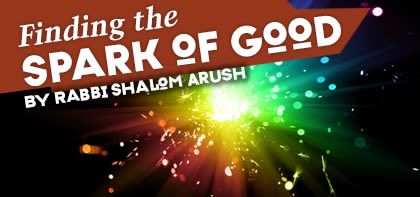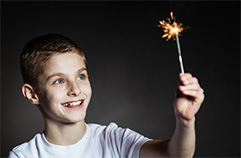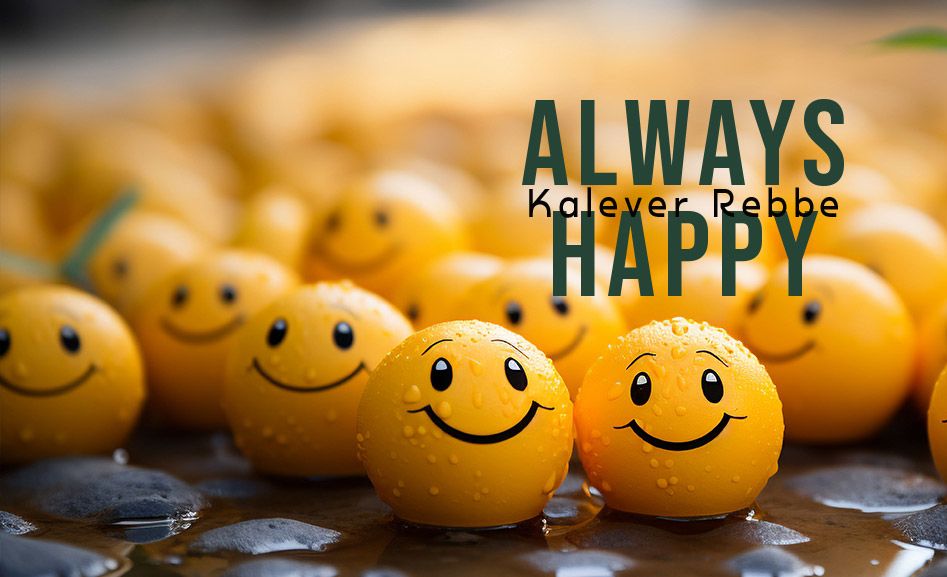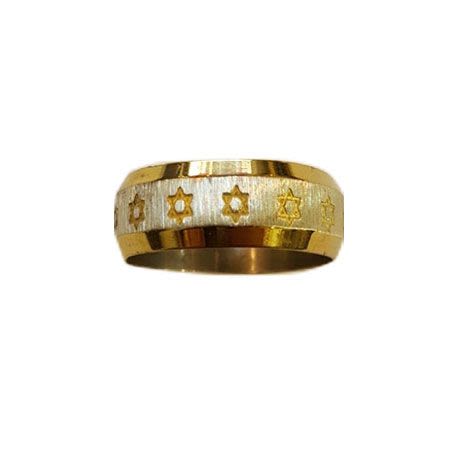
Finding the Spark of Good
By looking for a good point in someone who we can't stand, we find a "ray of light" in the seemingly intolerable person...

The awareness that we each have much to improve and work on leads us to judge others fairly. In that vein, Rebbe Nachman said that one must look for the good even in the seemingly worst person (see Likutei Moharan I:282).
Why should we look for a good point in an evil person, or in a seemingly intolerable person, someone who we can’t stand? Intrinsically, the Divine soul within each person is good, for it’s a tiny spark of G-dliness. The evil that a person displays is the manifestation of his inability or unwillingness to overcome his evil inclination. By looking for a good point, one finds a “ray of light” in the so-called evil person, and a little bit of light offsets the thickest darkness. So, as Rebbe Nachman explains, by finding a good point in that person, he or she actually begins to act in a positive manner.
By seeing evil in others, we ourselves have a connection to evil. Our own constant monitoring of ourselves enables us to understand others. A humble person thinks, “Wow, if Hashem wouldn’t have helped me, I could have been even worse than that person!” He doesn’t judge others, and if he does, he gives them the benefit of the doubt. And, by judging others favorably and fairly, we help their inherent good to surface and express itself, and literally make the world a better place.
One who lives in truth with himself can strengthen other people. He can encourage the depressed and  despairing and all the other broken souls. Indeed, he can identify with them and tell them, “I’m no better than you are. I’ve also hit rock-bottom and done terrible things. I’ve made mistakes right and left. But you can beat this rap; just turn to Hashem. It’s for real – let me tell you about it, dear brother or sister…”
despairing and all the other broken souls. Indeed, he can identify with them and tell them, “I’m no better than you are. I’ve also hit rock-bottom and done terrible things. I’ve made mistakes right and left. But you can beat this rap; just turn to Hashem. It’s for real – let me tell you about it, dear brother or sister…”
The difference between success and failure or between joy and sadness is simply knowing our rightful place on the spiritual ladder. Sure, it’s not easy. It requires hours of daily self-assessment, personal prayer, teshuva, candid confession. It means living the truth of where we are in the world, and once and for all, to stop fooling yourself. Leave the fantasy land to Disney World – it should not exist in our heart and head.
In one of Rebbe Nachman’s famed parables, he tells about a prince who lost his senses; the prince thought he was a turkey, gobbling and eating seeds off the floor under the dining-room table. No one succeeded in curing the prince, until a wise man came and completely identified with the prince, acting like a turkey as well. Gradually, the wise man nursed the prince back to sanity.
The lesson in the above parable is a deep one: when we empathize with others, and don’t separate ourselves from them because we know that we could easily be in their place, it’s easy to understand them instead of judging them. Everyone loves understanding and empathy but no one likes to be judged. One can’t help someone else by talking down to him. By identifying with others, and speaking on the same eye level, we can truly benefit them. But, one must never have a feeling of arrogance or superiority, for words coming from a place of dishonesty – and there is no greater dishonesty than arrogance – have no influence.
When someone identifies with you, and you feel that he understands you because he has experienced the same difficulties in life that you do, you become filled with hope. If he could be uplifted by strengthening his emuna and talking to Hashem, then so can I! But, for a person to identify with others, he must realize his true position on the spiritual ladder and recognize his own shortcomings. As such, an honest and humble person doesn’t judge anyone about anything.
Judging others is dangerous, for the Heavenly Court judges us according to the exact same criteria that we judge others. Our sages warn us never to judge another person if we haven’t been in his exact same circumstance. Only Hashem is qualified to judge people, for only Hashem knows all the pertinent facts that can completely change the picture from guilty to innocent. Once we realize that we are simply incapable of judging others fairly, then we stop judging them altogether. Rather than judging, we identify with them and have compassion for them, just like Hashem does for us. We act toward others the same way that we’d want others to act toward us if we were in their circumstance. And, if we do judge, we judge in complete lenience and understanding, just as we’d want others to judge us.












Tell us what you think!
Thank you for your comment!
It will be published after approval by the Editor.